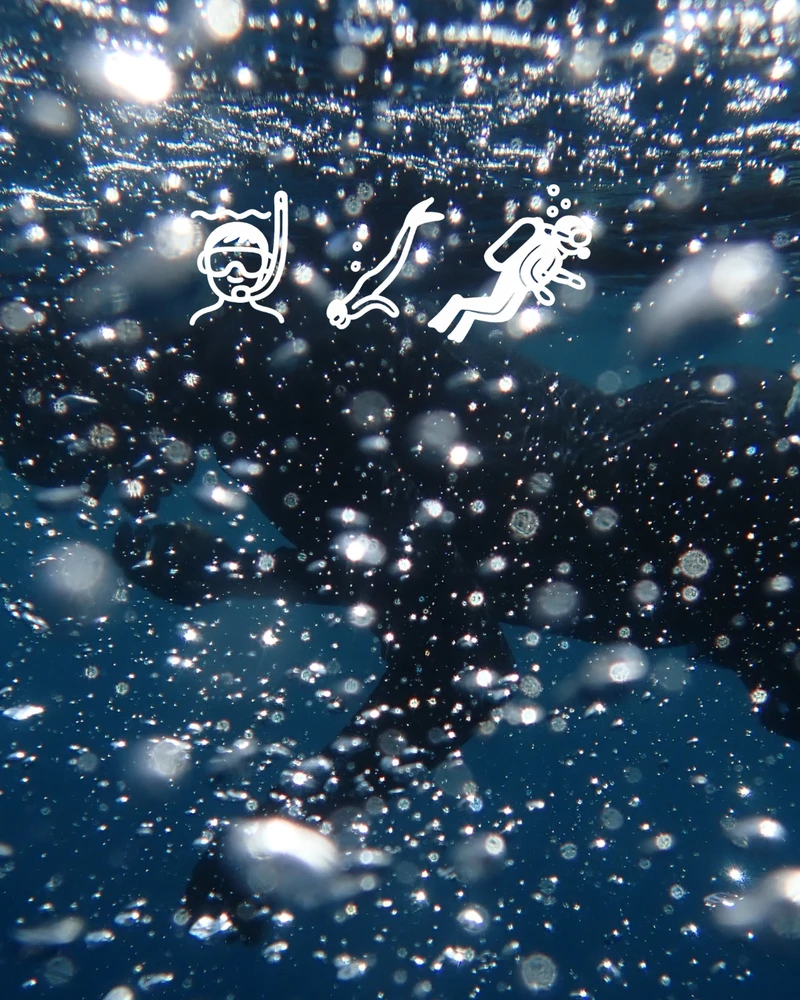Published: 2026-02-26 | Updated: 2025-11-06
Hi Ocean Lovers and Future Explorers!
My name is Yan. I’m a freediving instructor with more than 10 years of experience and the founder of Bali Freedivers Amed. My journey underwater started over 30 years ago in Crimea, Ukraine, and since then I’ve explored both seas and freshwater around the world.
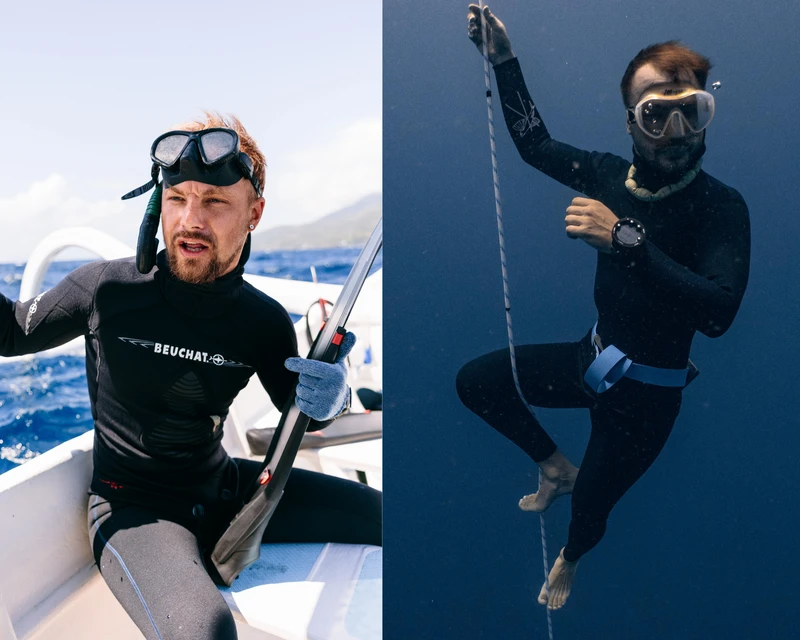
If I had to choose one passion in life, it’s discovering what hides below the surface. Since 2013, I’ve been living in Indonesia, traveling across its islands, and diving into its rich marine life. Over these years I’ve snorkeled, freedived, scuba-dived, and led freediving trips to some of the best spots in the country. Now I’d like to share my knowledge to help you understand which activity fits your goals and needs.
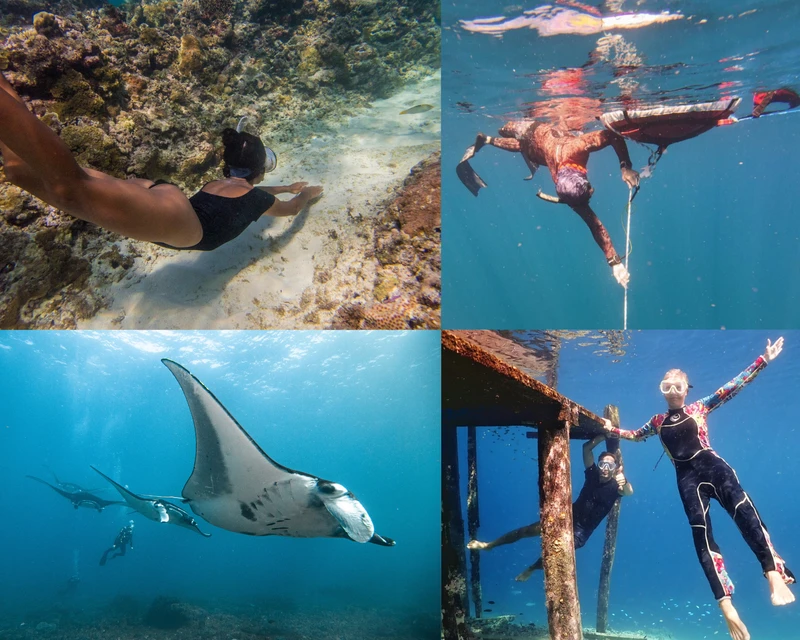
This article looks at the three most popular ways to explore the ocean: snorkeling, freediving, and scuba diving. Each activity is fun and rewarding, but they require different skills, equipment, and levels of training. Whether you’re planning a holiday by the sea or looking for a new hobby, this guide will help you choose the right way to enjoy the water safely and fully.
What is Freediving?
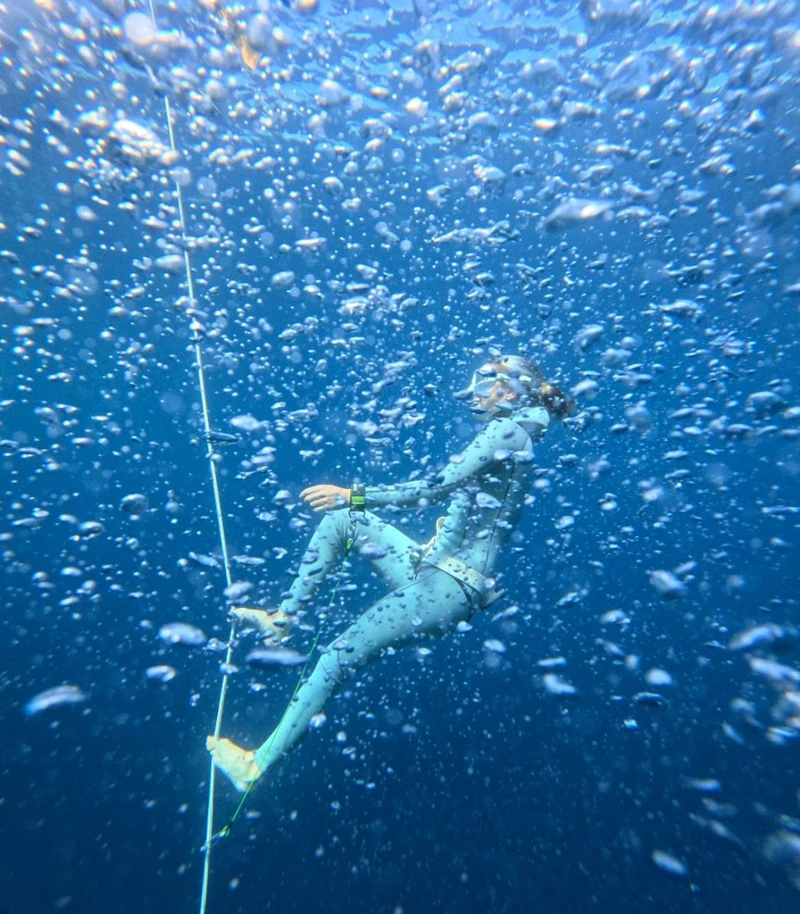
At its core, freediving means diving underwater on a single breath. It can be as simple as holding your breath while snorkeling, or as advanced as training for depth or pool competitions. In everyday life, freediving is about exploring the ocean without scuba gear—just you, your body, and one breath from the surface.
Freediving Training and Courses
Any entry-level freediving course starts with key skills: equalization, duck diving, breath-hold and relaxation, finning, and safety protocols. Most people begin with a freediving course in Indonesia or elsewhere in the world (1–3 days) that combines theory and practice. Beyond technique, freediving is also about self-discovery—finding calm, balance, and focus underwater.
Freedivers use very little equipment. Without tanks or heavy gear, you feel a rare sense of freedom, silence, and weightless flight beneath the surface.
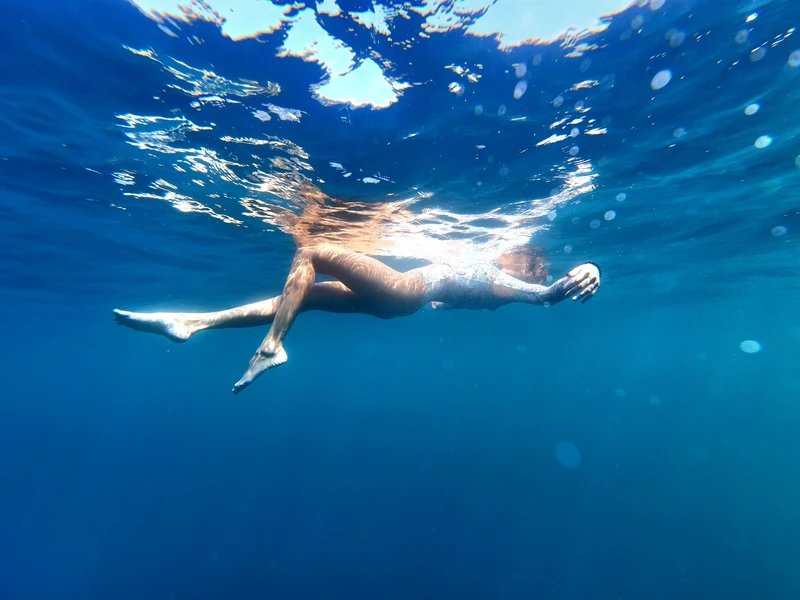
The Mental Side of Freediving
The real magic of freediving is how it trains the mind. To dive deeper and longer, you must relax and stay calm even when your body senses stress. That’s why our freediving courses in Amed focus so much on relaxation, mindfulness, and mental balance. Freediving isn’t just a tool for diving—it becomes a way to handle everyday challenges with more peace and resilience.
Beyond Depth: Freediving as a Lifestyle
Freediving training and advanced courses aren’t only about going deeper or staying down longer. They also unlock new ways to enjoy the ocean, from mermaiding and underwater photography to my own biggest passion—spearfishing and sea foraging in Bali and across Indonesia. These activities make freediving more than a sport; they turn it into a lifestyle and a doorway to unforgettable adventures.

Safety First
Finally, safety is central to freediving. A proper course with a certified instructor clears up myths about breath-holding, teaches safe practices, and ensures your dives are both fun and secure. I learned this myself the hard way—starting out with friends and no training wasn’t safe. Once I took my first freediving course, I understood how important safety and proper guidance truly are.
Tip: If you want to learn more about beginner freediving in Bali, check out this How to start freediving in Amed, Bali from our Amed school.
Snorkeling
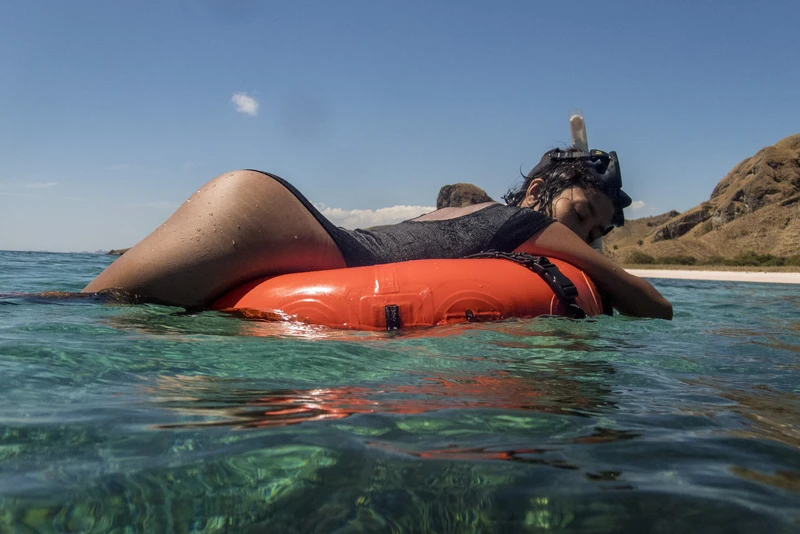
Snorkeling is the easiest and most beginner-friendly way to explore the ocean. With just a mask and snorkel, you can relax on the surface and enjoy the view of colorful reefs and marine life. Most snorkeling in Bali and Indonesia happens in shallow water, usually 3–10 meters deep, where the light is bright and corals are most vibrant. It’s a simple and low-effort way to see the underwater world without tanks or training—perfect for holidays or first steps into ocean exploration.
Snorkeling Gear
Snorkeling gear is minimal: mask, snorkel, and fins. In snorkeling, water pressure isn’t an issue, so you can choose any comfortable mask, even one with a wide view. Avoid poorly maintained full-face masks, as they can trap exhaled air and cause CO₂ buildup. A simple snorkel is the safest option, and short fins are more than enough—they also save space in your suitcase. If you’re buying your own gear for snorkeling in Bali or Amed, start with a good-quality mask and snorkel before adding fins.
Snorkeling Safety Tips
- Never snorkel alone.
- Use a bright float so boats can see you.
- Stay clear of boat traffic and crowded areas.
- Don’t touch corals or fish—they can be dangerous, and you’ll protect the reef.
- Always check conditions (currents, tides, waves, or marine life) before entering the water
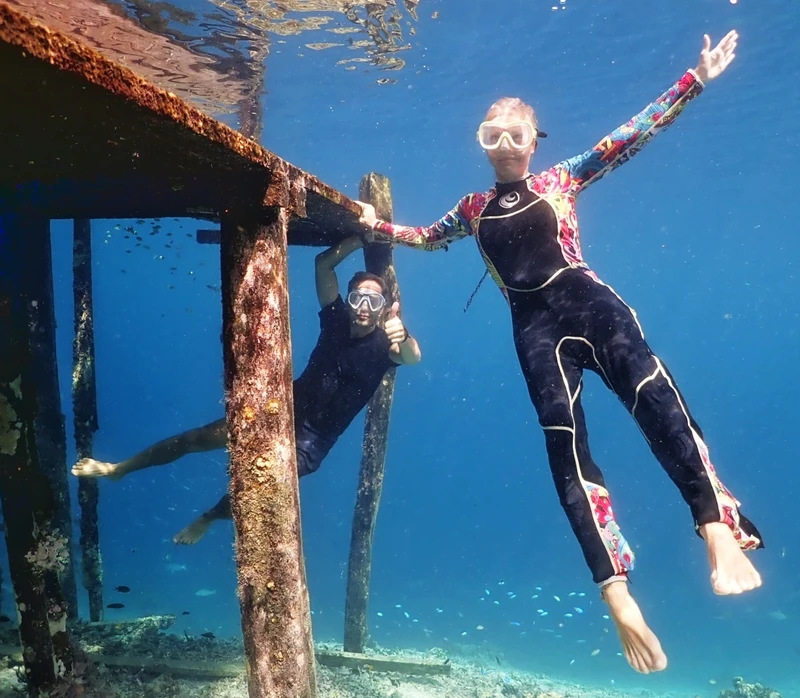
Snorkeling in Amed or other parts of Bali is one of the best ways to discover Indonesia’s underwater treasures. It’s safe, affordable, and accessible to anyone with basic swimming skills—an unforgettable way to start exploring the sea.
Tip: Want to know where to snorkel in Amed? Check our Fun Fun Freediving Amed Guide guide for the 10 best snorkeling and fun diving spots.
Scuba Diving
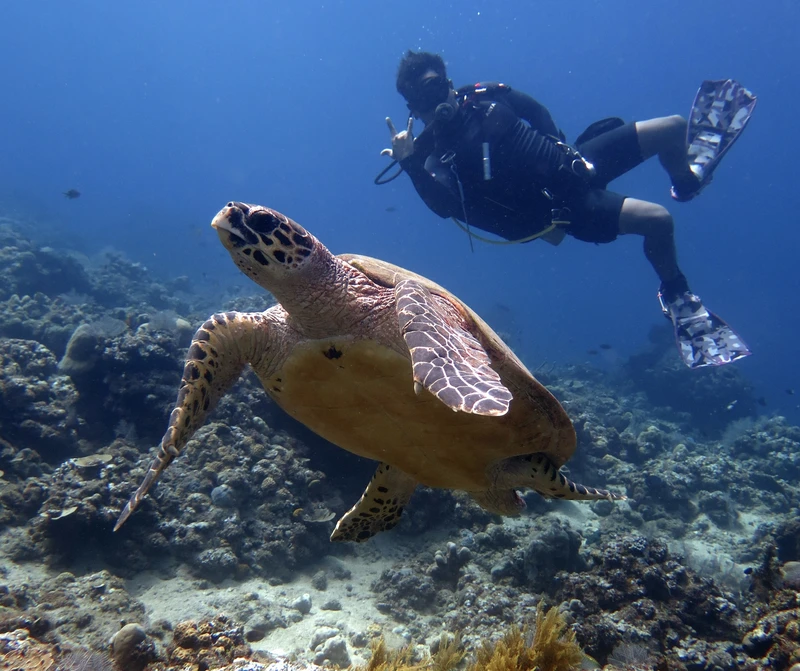
When people think about diving, scuba diving is usually the first that comes to mind. SCUBA (Self-Contained Underwater Breathing Apparatus), also called the aqualung, is the invention that allows us to stay underwater for long periods while breathing from a tank. With scuba gear, you can explore deeper coral reefs, focus on details of marine life, and rely less on your physical limits compared to freediving.
Scuba diving also opens doors to new opportunities—like joining marine research or conservation projects. The trade-off is the heavier equipment and dependence on gear, which makes you less mobile than in freediving.
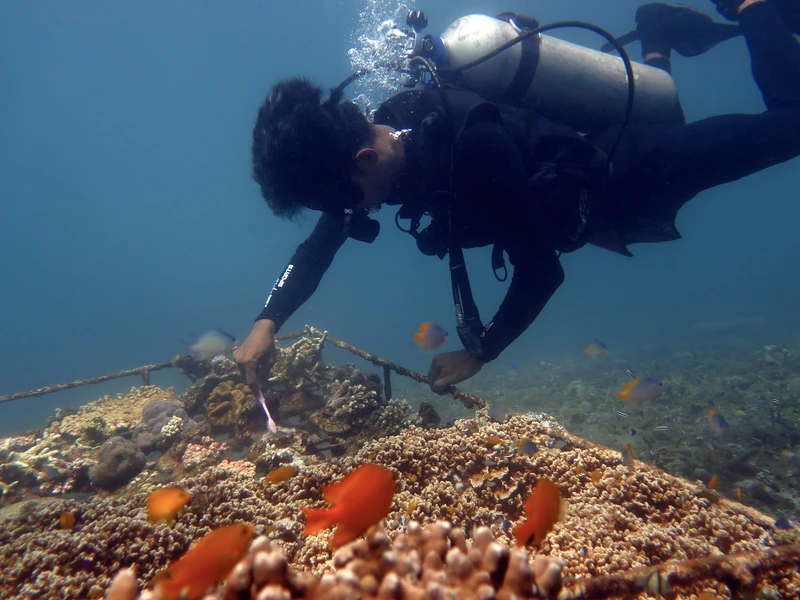
Scuba Diving Education
Like freediving, scuba education is well-structured worldwide, with popular programs from PADI and SSI. By becoming a certified diver, you can join exploration trips across Bali, Amed, and Indonesia’s top dive sites. Many describe scuba as visiting an underwater museum, moving from one “room” to another.
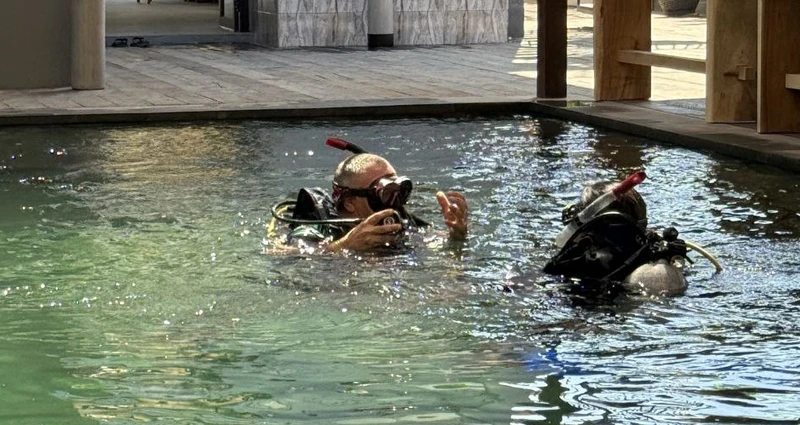
Training programs cover safety in detail, especially breathing gases under pressure and proper equipment use. One important tip for those who enjoy both scuba and freediving: wait at least 12 hours after a scuba session before freediving, and up to 24 hours after multiple or deep dives. This helps your body adjust to gas exchange safely. (Snorkeling after scuba diving has no such restriction, since it involves no pressure changes.)
Tip: If you’re planning to try scuba diving in Bali, here are some trusted dive centers we recommend (in Amed and Nusa Penida):
- Calypso Diving Bali – Amed’s unique dive center dedicated to coral reef restoration and ethical diving—join their dives and learn marine ecology like nowhere else.
- Pure Dive Resort – With 10+ years of guiding in Nusa Penida, Ceningan, and Lembongan, this team is your best choice for exploring Bali’s most diverse underwater region.
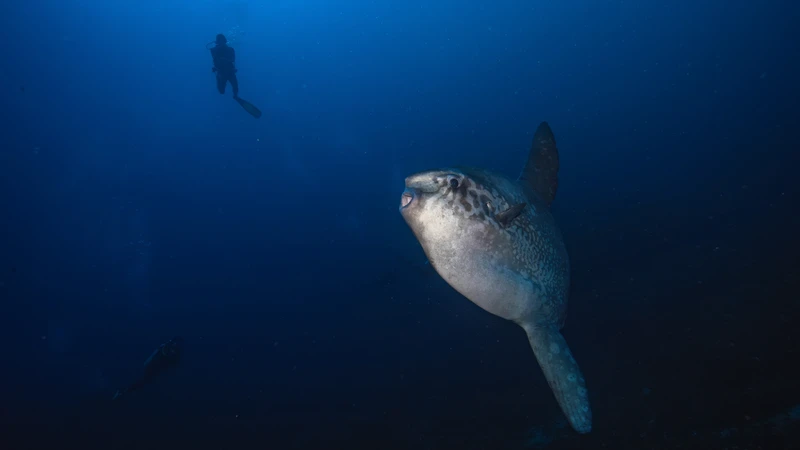
Snorkeling vs. Freediving vs. Scuba Diving: Summary
DEPTH
- Snorkeling: Surface to 3–5 m.
- Freediving: 10–30 m with training (and much deeper for advanced freedivers).
- Scuba: 18–30 m for beginners, deeper with courses.
Equipment
- Snorkeling: Mask, snorkel, fins.
- Freediving: Same basics + wetsuit/weight belt (you might want long fins).
- Scuba: Full set with tank, regulator, BCD.
Training
- Snorkeling: None, just swimming.
- Freediving: Short beginner course (enough to start).
- Scuba: Certification (PADI, SSI).
Experience
- Snorkeling: Relaxed surface view of reefs and fish.
- Freediving: Pure silence, close encounters, freedom to explore reefs and walls.
- Scuba: Longer bottom time, deeper coral, wrecks, and marine research.
How to Choose
- Snorkeling – easiest start, light and fun.
- Freediving – freedom, connection, and still a real way to explore.
- Scuba – depth and detail, but with more gear.
Why Do I Choose Freediving
My journey with the ocean started when I was 6 years old. Back then it was mostly snorkeling, with a little bit of breath-hold diving no deeper than 5 meters. Even at that age I was hooked by two things—the ocean itself and the feeling of freedom. I loved challenging myself, imagining I was some kind of merman (you can picture what’s in the head of a 6-year-old boy).
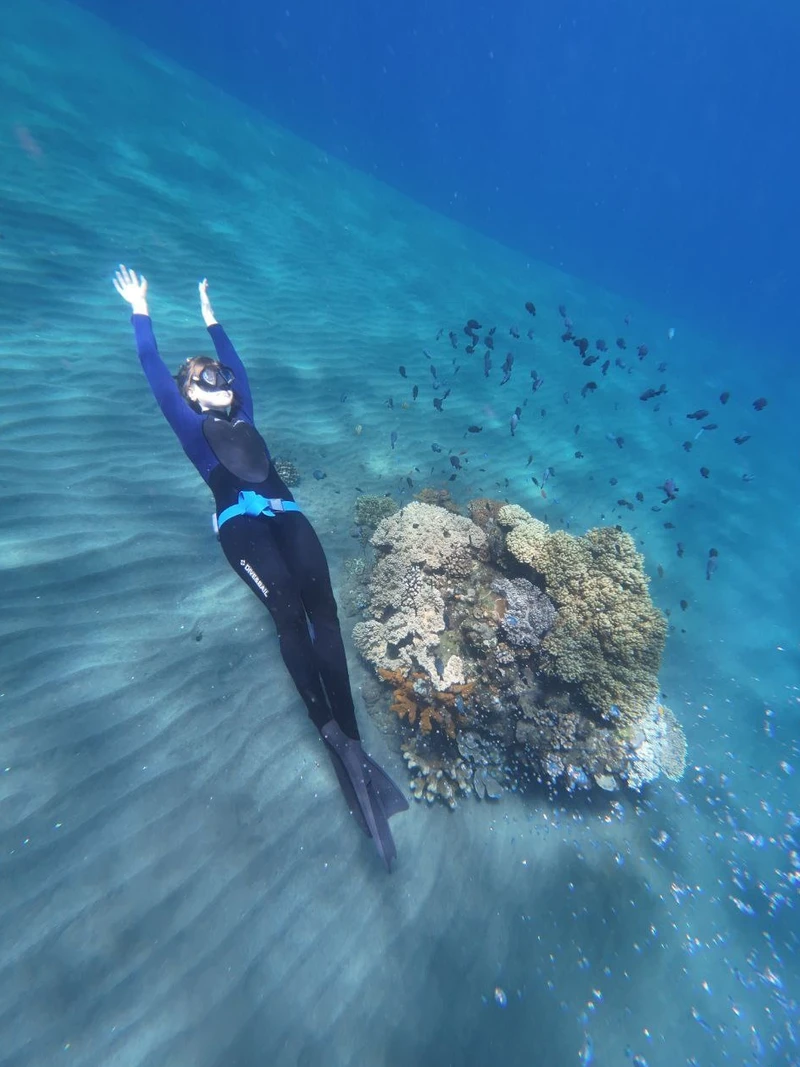
But it wasn’t until I took a proper freediving course in Bali about 11 years ago that I began to understand the full benefits of this practice. By that time, I already had solid scuba diving experience and thought I just wanted a way to dive far from towns, villages, and dive centers. Freediving gave me that, but also something much deeper: a tool to explore my inner self, to master my own mind, and to melt into the silence of the sea.
Later I discovered spearfishing, which added another perspective. It sharpened my understanding of marine life, taught me respect for the ocean’s resources, and strengthened my ethical mindset toward nature’s gifts.
If I had to recommend just one way to explore the ocean, it would be freediving. But the truth is, each activity—snorkeling, freediving, scuba—has its own beauty. Try them all, then decide which one speaks to you most.
Let me know which activity would you choose to start with or which one is your favorite if you have some experience in comments...I'm curious ;) And if you ever want to know more about training, the best spots in Amed or Tulamben, or tips about gear, skills, and safe practices, feel free to reach out. I’m always happy to share my experience with anyone curious about discovering the ocean in Bali or elsewhere in Indonesia.
